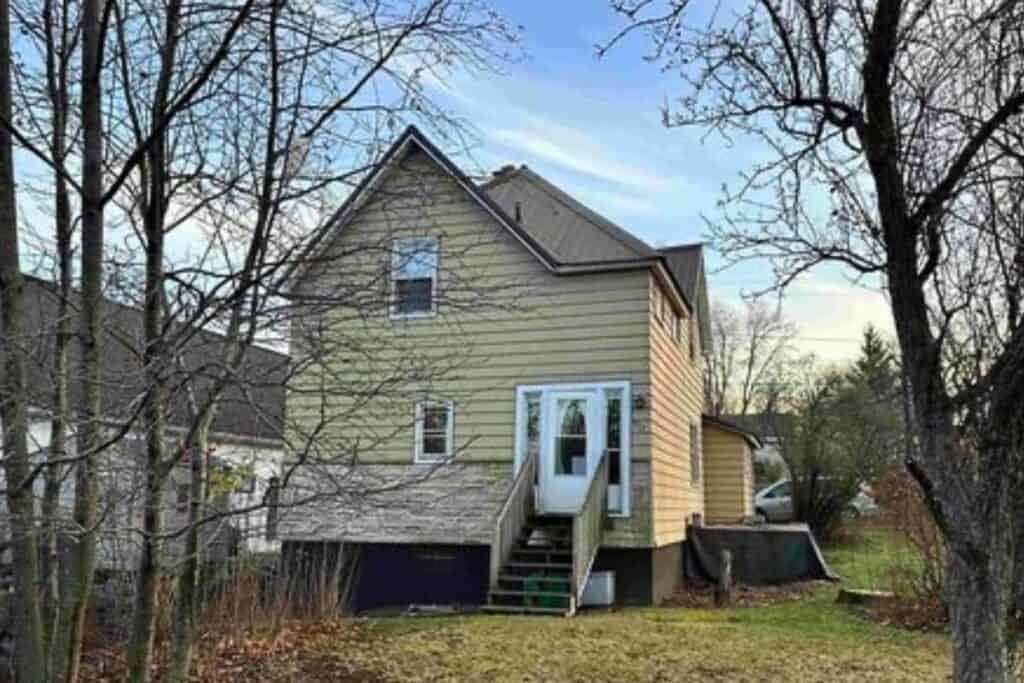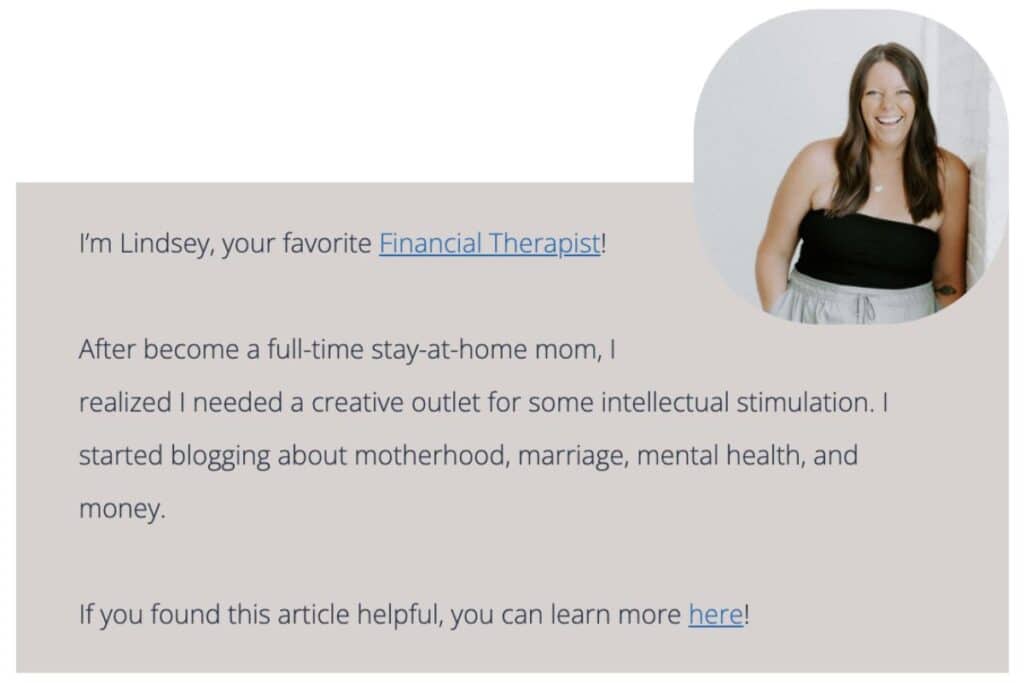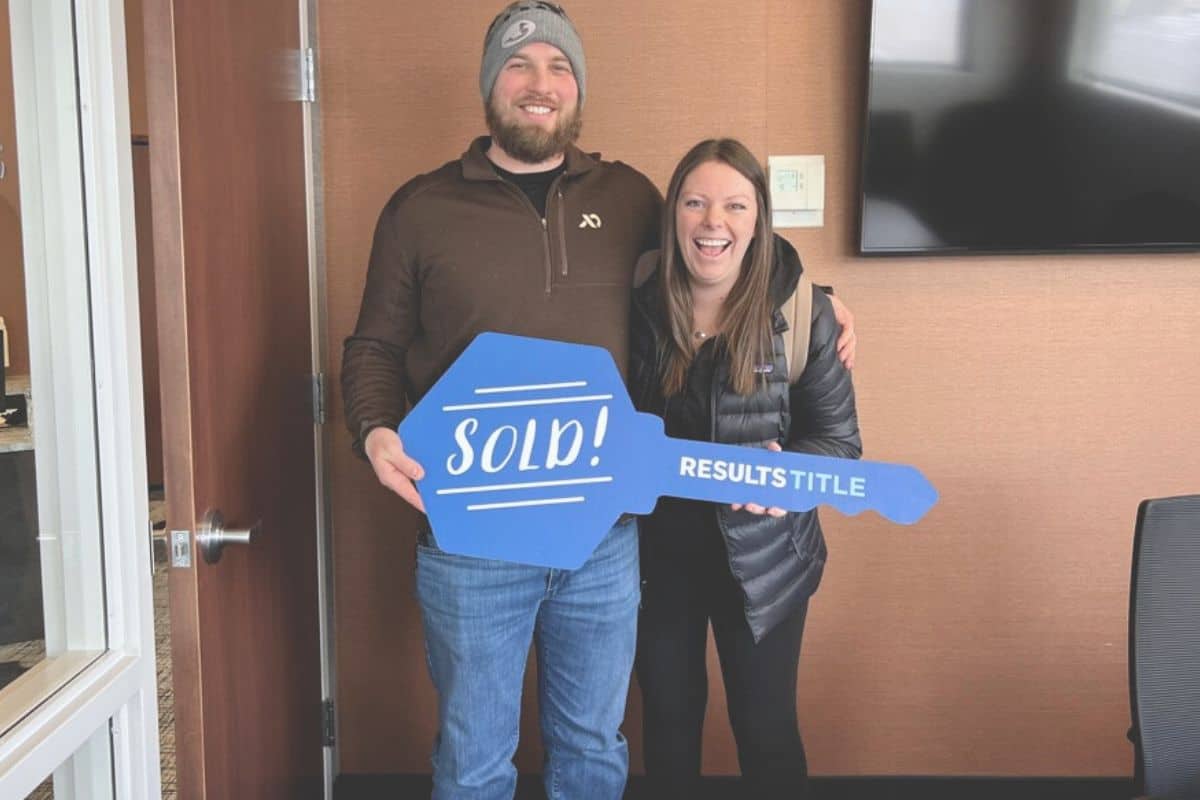Real Estate Investing: 5 Mistakes We Made (Part 2)
I’m giving you an update on our real estate investing journey (and our real estate investing mistakes we’ve made along the way) because we’re officially in the game!
You can listen to today’s episode of Financial Self-Care on Apple, Spotify, or wherever you like to listen!
Real Estate Investing Mistakes
Last time I talked about this, in episode 18 (if you haven’t listened to that episode yet, go back and do so), I mentioned that you can’t become an expert on anything until you start as a beginner.
Well, let me tell you, this was quite the beginner process. It’s never been more clear that we were rookies. And I’ll pull back the curtain and let you in on all the things we did wrong, what we did right, and everything we’ve learned so far.
To be clear, we’re still very much beginners, but buying our first property feels like a huge accomplishment and a step in the right direction!
So let’s pick up where we left off from episode 18, which was released on December 24th 2024.
If you remember, the house we wanted was listed at $225,000. Then reduced to $215,000. We came in at $198,000. They countered at $200,000 and we accepted, contingent upon inspection!
Real Estate Investing Mistake #1
This leads me to real estate investing mistake number 1.
I tried to be a hero and sweeten the deal too much, which backfired on me.
You see, from everything I’ve read about real estate investing, you – as the buyer – want to make your offer enticing. There are many ways to do that like:
- making a competitive offer,
- have a quick closing date,
- providing a large earnest money deposit,
- minimizing contingencies,
- writing a letter to the sellers,
- And more
So, in my rookie mind, I thought, “Okay, we’re getting the house for a good price at $200,000. To entice the seller to accept our offer, I will also provide a larger-than-normal earnest money deposit and offer a quick closing date.
For those who are unfamiliar with what an earnest money deposit is (also known as a good faith deposit), it’s just fancy lingo for money you put down before actually closing on the property to let the seller know you’re serious about the purchase.
Because if you, as the buyer, back out for a multitude of reasons, you lose your earnest money.
Generally, the earnest money deposit is 1%-3% of the purchase price. I chose to put down the higher side of normal, 3% for our earnest money deposit, which was $5,900.
Meaning, if we chose to back out of this deal, we would lose nearly $6,000 – that’s a lot of money!
I also wanted to make our offer look even better with a quick closing date. Most closings are between 30 and 60 days. We put our offer in on December 20th, and we said we would close on the house on January 20th. So, again, the short side of normal.
Both of these things, especially for a brand new investor was a mistake. It may have helped seal the deal. But I’m pretty sure the sellers would have accepted our offer with 1% earnest money and a 60-day closing.
And had we done that, it would have ended up being far less stressful overall. And I’ll explain in the later part of this episode.
The good news is, I wasn’t a total numbskull, and I did require an inspection on the house.

Real Estate Investing Mistake #2
BUT… That leads me to real estate investing mistake number two: timing of the inspection.
What I didn’t know before putting our offer in is that you, as the buyer, only have 7 to 10 days to get the inspection done AND submit any counters to the seller before you’re locked in to your contract for good.
Well, let me remind you that we had an accepted offer on December 20th. Our inspection window was 10 days, but do you know what happens within those ten days following December 20th? Christmas Eve and Christmas. That’s what happens.
Plus, this is a rental property, so the sellers have to give the tenants 24-hour notice before the inspector can go into the house.
So my 10 days were fast becoming shorter and shorter.
Honestly, I don’t think we would have waited to put the offer in. But it was extremely nerve-wracking to find a good inspector with availability within the timeframe allotted, especially given the holidays and weekends.
Luckily, the universe was giving me some grace and it all worked out. We set our inspection up for December 26th. The guy we worked with was incredibly helpful and knowledgeable. And that experience was lovely.
He did find a few things that needed to be fixed or updated before we felt comfortable moving forward including:
- Replacing a janky window, and
- Updating fire detectors to be compliant with code
So we start renegotiations with the sellers.
Simultaneously, we are in contact with our lender, whom we were pre-approved with before ever putting an offer in of the house.
Real Estate Investing Mistake #3
This is where we come to real estate investing mistake number three.
We did not build a good, trustworthy team around us before diving in to purchasing a property.
I actually don’t even know if this qualifies as a mistake, but like probably.
As a refresher, we couldn’t use conventional or traditional financing on this investment property. That was because AJ left his stable W2 job, and I haven’t been in business long enough to qualify for financing.
Despite having credit scores in the 800s and being in a fairly solid financial position, my self-employment was a barrier.
We found a loophole called a DSCR loan, essentially made for people like us. Where the lender is able to look at the income that the rental property is producing, compared with the debt ratio of the purchase price, and determine if it’s a deal they can underwrite. The house we wanted did qualify for a DSCR loan because the ratios looked good.
Once we jumped over that financing hurdle, I immediately received a quote from the lender for an interest rate. Without knowing the interest rate, it’s impossible to know if this is a solid deal or not. So lending and pre-approval is pretty much always stop number one when you’re buying a house, whether it’s your primary property or an investment property.
Real Estate Investing Mistake: Don’t Skim on a Good Lender
Get this: We contacted this lender on December 7th to make sure they’re able to help us finance the house with a DSCR loan. She confirmed that yes, this is a loan type that they offer. We would need to put 25% down on the house, and our interest rate on this property would be 7.125%.
That interest rate sounds high, and it is, but still… The numbers worked out on this property well enough that we wanted to go ahead with the purchase.
Fast forward to putting in our offer on December 20th. I reached back out to the lender to get rolling with financing. At which point, she told me the interest rate is going to be 8.75%.
At this point panic sets in. Because we have an accepted offer on this house. And that agreed upon $5,900 in earnest money that we would lose if we back out.
But the numbers on this property DO NOT work with a 8.75% interest rate. We would be losing money each month, hemorrhaging money.
So I’m going back and forth with the lender, trying to figure out where her error was. Meanwhile, I’m also contacting every other lender I can find to finance this property.
As it turns out, many lenders are notorious for underquoting buyers at the beginning of the deal, and then when the need for financing actually comes up. This is what happened in our scenario. They increase the rate and you, the buyer, gets screwed.
(Weeks later, I actually found out this particular lender was fired for doing this exact thing from a previous lending agency.) While it’s not illegal it is unethical. Moral of the story: People can be really icky. If you start investing in real estate, find trustworthy people to work with.
But anyway, I continue to panic consult with other lenders. And I found a national company who quoted us a 7.5% interest rate. Not as good as the original 7.125% that I ran the numbers with, but good enough that the deal still works.
We’d still have cash flow on the property. So we signed on the dotted line.
But because we had to change lenders late in the game, the turn around time from our original closing date of January 20th was way too short for the new lender to do their appraisal and everything else. We had to go back to the sellers and extend the closing date to February 3rd.
Not ideal, but this is what I was talking about in mistake #1. Had I just started with a 60 day closing, we wouldn’t have had to push our closing back and irritate the sellers.
At this point it’s December 29th, and we get through renegotiations with the sellers. Our final purchase price is $199,500. We’ve found a new lender. And though we have a pre-approval for financing, we actually need to obtain the financing.
Real Estate Investing Mistake #4
And this is where I introduce you to real estate investing mistake number 4. Or maybe a continuation of 3, but either way…
We didn’t find a good lender, and that’s a BIG mistake.
When I was panic searching for a new lender, I literally was cold calling and emailing random companies from a Google search. Turns out, just because a lender knows SEO and can rank on Google, doesn’t mean they know how to do, well, anything else.
This lender was a nightmare to work with. From their lack of communication abilities to sneaky hidden fees and overcharges, they are high on my DO NOT EVER WORK WITH THEM AGAIN list.
For example, an origination fee is, “the fee you pay at closing to cover the cost of processing and funding your home loan.” A normal rate for an origination fee is .5%-1%. We paid 2.38%. Plus, we put down a deposit of $2,500. These two payments equal over $6,000.
If we had found a different lender, that number would have been closer to $3,000.
Is this annoying? Yes, very.
But, we decided to still work with them because while losing $3,000 on the frontend is irritating. The interest rate they offered was so much lower than any other lender I had talked to.
For reference: With this loan, assuming we never refinance to a lower interest rate and we continue on the 30-year mortgage, we will pay $227,000 in interest.
But if we had locked in with the original lender at that 8.75% interest rate, we would have paid over $274,000 in interest.
And another lender I spoke to came in at 9.3%, which would have cost us over $295,000 in interest over the 30-years.
Needless to say, saving tens of thousands of dollars in interest was probably the better move.
But still, I would have been better off doing my due diligence and building a strong, trusting relationship with a lender before buying our first property.
I’m not going to name the lender that shall not be named here. Frankly, I don’t want ANYONE to use them. But if you want to private message me, I will happily give you their name and you can help spread the word about how awful they are.
Now that we have learned from that mistake, I’ve already been in contact with new lenders to start mitigating that concern. Because when we buy our next rental property, we want to be prepared and that includes having a solid team!
All this to say, we made it to closing.
And it’s been a wild ride, and we’re only just beginning.
Real Estate Investing Mistake #5
But I will leave you with one final real estate investing mistake that we made, and that is: being unwilling to ask stupid questions.
As I’ve said many times over, we are new. We don’t have a clue what we’re doing. I’m learning along the way, and I’m bringing you along with me.
So on the day of our closing we showed up entirely unprepared.
After all the lending nonsense, we were forced to push our closing date back to Monday, February 10th. Nearly a month after our original closing date of January 20th.
On Monday, we showed up to our walk through, the house looked good. The sellers had done what we had asked like moving the fire detectors to be within code.
Then our real estate agent said we needed to zip down to city hall and get all the utilities put under our name. Thank god she reminded us to do that, because it totally slipped our minds.
We took care of that – again the universe was on our side, because that was a 5 minute process and botta boom botta bam, we were on our merry way to closing.
The sellers had done their part earlier, so the only people at the table were the title company, our realtor, and us.
And the first thing the closer said to us was, “Okay did you bring your cashier’s check?”
We promptly said, “No, we just plan to wire the money.”
Her face fell, and we instantly knew we had messed up.
Without boring you with too many details, it turns out, wiring money from your bank can be quite difficult and we wasted a good bit of time trying to figure out how to get it done without needing to drive two hours to the local bank branch to get a cashiers check.
We should have asked A LOT more specific, clarifying questions before making some assumptions and stressing out the closer, our realtor, and us by showing up unprepared.
So far, despite our many mistakes, it’s all worked out and we did close on the house.
The Wrap Up: Real Estate Investing Mistakes
As a recap, real estate investing mistake number 1 was trying to be hero and sweeten the deal too much. I should have just been normal, and offered a 60-day close (which would have saved a big headache later on) and a lower percentage rate on the earnest money.
Next, real estate investing mistake number 2 was we didn;t plan for a quick turn around on our inspection, causing a bit of stress.
The best way to have dealt with that as a new investor is to have taken the time to network and build a team before putting an offer in on a house
That also ties into real estate investing mistake number 3 and 4, which was not having trustworthy people – especially a lender – on our team before making an offer on the property.
Again, network, network, network, and start making those connections before you enter a baptism by fire situation.
And finally, our last real estate investing mistake was not asking clarifying questions. We showed up to closing underprepared. And while it all worked out, we could have been more ready and thus caused less of an emotional roller coaster for everyone.
I’m certain this will be an ongoing saga with many learning lessons along the way.
But as I do more investigating into the real estate world, I find that it isn’t much different than the personal finance world.
There’s a whole lot of gatekeeping and specific lingo that unless you speak real estate, you feel lost and confused by.
I’m dismantling that one post at a time.
Next read: Is Renting Throwing Money Away? The SURPRISING Numbers

